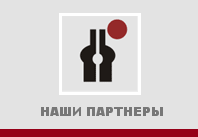Дата : 31.01.2005
Тема : United Nations - Against Afghan Drug Traffickers
31 January 2005
United Nations Counter-Narcotics Chief Calls for International Arrest
Warrants
Against Afghan Drug Traffickers
KABUL/VIENNA, 31 January (UN Information Service) --
Antonio Maria Costa, Executive Director of the United Nations Office on Drugs and Crime
(UNODC), is encouraging Afghan President Hamid Karzai and his
new Government to take tough measures against drug traffickers, and to
support "a negative pledge," i.e., a commitment by farmers to refrain from
drug cultivation, as a condition for the receipt of grants, loans, and
other development assistance. If eradication efforts do not materialise,
monies from donor States, non-governmental organizations, and other
multilateral agencies would be rescinded.
"President Karzai and his cabinet have pledged to eliminate drugs
in
Afghanistan," says Mr. Costa. "In 2005, we need to see
results,
counter-narcotic efforts that prove this new democracy can, in
fact,
deliver on its promise to eradicate Afghanistan's poppy fields. I
have
urged the Government of Afghanistan and partner States threatened by
an
increasing influx of heroin to take up this challenge in effective
and
immediate ways -- by offering one another mutual legal assistance
and
creating legal mechanisms to support the prosecution of major
drug
traffickers," he adds.
To this end, the UNODC Executive Director is recommending "measures
that
would facilitate mutual assistance and extradition, including the
issuance
of international arrest warrants," an action supported by Articles 16
and
18 of the United Nations Convention Against Transnational Organized
Crime
and Articles 6 and 7 of the United Nations Convention Against Illicit
Drug
Trafficking.
The United Nations Convention Against Illicit Drug Trafficking has
been
ratified by the Government of Afghanistan, an achievement which
reflects
the commitment of the Afghan authorities to expanding the
Government's
extradition and mutual assistance network. If such an expansion does
occur,
the result would be the facilitated extradition of Afghan nationals
in
conformity with Article 128 of the Constitution of Afghanistan.
Mr. Costa also stresses an urgent need for judicial reform
in
Afghanistan. "European States and other nations willing and able
to
extradite traffickers for trial in other countries need to
help
investigators and prosecutors in Afghanistan build strong cases that
will
hold up in any court -- this fledgling democracy needs outside support
and
technical assistance to strengthen its judiciary."
During his current visit to Kabul, Mr. Costa also meets with
Commander
General Jean-Louis Py of the North Atlantic Treaty
Organization-led
International Security Assistance Force (ISAF), representatives from
the
international donor community, and heads of multilateral agencies
that
support economic development in Afghanistan.
Mr. Costa compliments President Karzai for the progressive
stabilization
and for the political accomplishments in 2004, especially his election
and
the appointment of a new Cabinet committed to fighting opium
cultivation.
"In 2005, we should begin to see good news coming out of Afghanistan,"
says
Mr. Costa, who also supports eradication measures currently underway.
"No one can deny the magnitude and gravity of the current situation
in
Afghanistan. Major donors, multilateral development banks, the
military
operating in Afghanistan, and international aid agencies understand
that
the Afghan drug problem demands a bold and immediate solution,"
says
UNODC's Executive Director.
While it is too early to estimate the 2005 opium harvest,
anecdotal
information points to a probable reduction in cultivation. According to
Mr.
Costa, "UNODC has been asked to verify the extent of eradication. If
the
evidence confirms what we suspect, a decrease in hectares devoted to
poppy
cultivation, it would be welcome news. The current opium glut is making
it
easier to persuade farmers to switch to alternative activities. But we
must
act now, before the opium production cycle has an opportunity to
rebound
and re-establish its hold on the Afghan economy."
Mr. Costa says the way to prevent opium cultivation from returning
to
Afghanistan is to "award greater development assistance to farmers at
this
precise point in time, to guarantee an off-set to income losses
from
eradication, and to shore-up the voluntary abandonment of
opium
cultivation." These initiatives would be implemented in tandem with
more
effective law enforcement measures, and the strengthening of
criminal
justice systems.
President Karzai has reiterated his support for and confidence in
the
work of UNODC, and confirmed his government's commitment to
realizing
demonstrable improvements in eradication in 2005.
Архив материалов
| 










